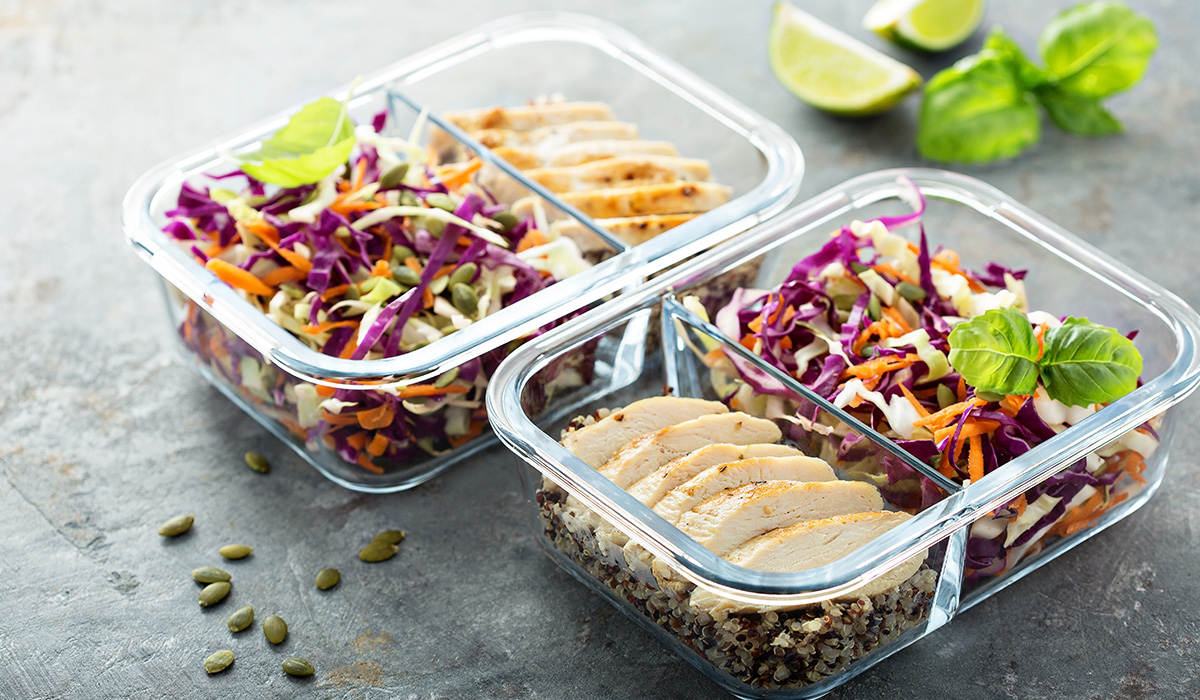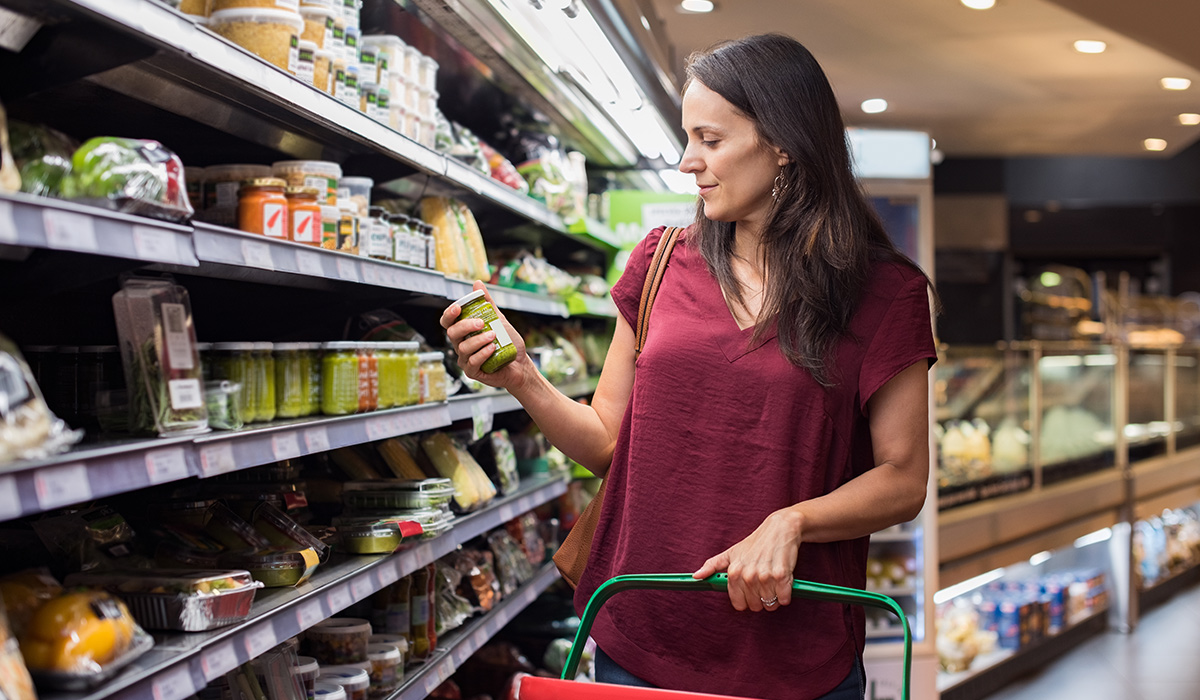6 simple tips for eco-friendly eating
Beth Furness - Assistant Nutritionist | 20 Apr, 2023
Here at Nutracheck, our ethos is safe, sustainable weight management, in both senses of the word! Making food choices that benefit both you and the planet has never been more vital, as the crisis facing our environment ramps up. There are lots of little ways that we can all do our bit – small changes can make a big difference! In light of Earth Day yesterday (22nd April), here are our top tips for eating sustainably.

Eat more plants
We're now producing more than 340 million tonnes of meat each year – that's a staggering three times more than 50 years ago. Producing meat at this scale is a leading cause of climate change, as well as water depletion and soil erosion. More than a quarter of greenhouse gas emissions, and almost 80% of ocean and freshwater pollution is caused by agriculture.
This is why we're looking for alternatives to meat and championing the power of plants! When we eat vegetables and grains directly, instead of using them as food for livestock, far less land and water is used, and the greenhouse gas emissions are a fraction of those produced by rearing livestock (yes, I’m talking about cow burps!). Additionally, because the food chain is shorter, significantly less energy is lost, meaning we can feed more people, which is a win for social sustainability.
Now I’m not suggesting you must cut out animal products altogether (unless you enjoy the vegan lifestyle!). Meat and dairy foods are nutrient-rich and offer some valuable benefits compared to plant-based foods. For example, vitamin B12 is almost exclusively found in animal products, so cutting them out entirely may make it difficult to meet our body’s B12 needs without supplementation. In addition, our body is better able to absorb iron and omega-3 fatty acids naturally occurring in animal products compared to vegetables and grains that contain these nutrients.
That said, there is certainly scope for us all to re-evaluate, and perhaps change our attitude towards meat – from the key ingredient in our meals to a complementary food within a plant-first diet.
A major concern that leaves many people hesitant to try a plant-based or flexitarian diet is the fear of not getting enough protein. However, it’s absolutely possible to meet your protein target without eating animal products. Here are some recipe ideas to inspire you to ditch the meat:

Revamp your leftovers
In the UK, it’s estimated each household throws away an eye-watering 6.6 million tons of food each year. That’s one third of the food we buy. Can you imagine taking £100 out of the bank and immediately throwing £33 of it in the bin?!
It takes energy, land and water to grow, transport, process and distribute our food products, so when food ends up in the bin, this energy, land and water is also ultimately a waste. The contents of our bins eventually ends up in landfill, which emit large amounts of methane, a harmful greenhouse gas.
To reduce your food waste, show your leftovers some love and think twice before heading to the bin. There are lots of creative ways to use up extra ingredients. Here are 5 recipes that make the most of our commonly wasted foods.

Plan your meals
To avoid having any leftovers altogether, plan out your meals for the week. Making a shopping list for your next supermarket trip or online shop can help you only buy what you need, which is a win for minimising food waste and also saving money.
One of the best ways to eat well and reduce the amount of food ending up in your bin is by meal-prepping. Buy all your ingredients at the weekend and fill up reusable containers with all the meals you'll need for the week ahead. So when you're exhausted after a day of work, you don't need to resort to ordering in a takeaway – you'll already have a tasty meal in the fridge that can be ready in minutes.
To help you get started with meal prepping, you might find this blog useful.

Shop locally and seasonally
Due to the globalisation of the food industry, we're now able to eat all our favourite foods all year round. Food is either transported thousands of miles from other parts of the world, or by using methods of growing out-of-season produce in the UK using specialised greenhouses where light, water, temperature and pressure can be controlled with precision.
The considerable greenhouse gas emissions racked up by importing fruit and veg thousands of miles are a major contributor to the carbon footprint of our food. Not to mention the energy and water needed to power the greenhouses and create the specific conditions needed to grow out-of-season fruit and veg. Plus keeping perishable food in safe storage for months, to be sold out of season as 'fresh' as if they were picked days prior. All these processes create a significant environmental impact, so opting for local seasonal produce is a better option from an environmental perspective if you're in a position to do so. Not to mention the benefits of supporting local growers and suppliers!
Check out our guide to seasonal produce to find out what fruit and veggies are in season now.

Cook from scratch
An eye-watering 14 million tons of plastic end up in our planet's oceans every year. Single-use food and drinks packaging make up almost half of all human waste. Unfortunately, just 9% of plastics end up recycled, and it's important to remember the energy required to turn old plastics into new ones compared to never producing it in the first place. The remaining 91% of plastics are either incinerated, dumped in landfill or threatening the wildlife in our rivers and waterways.
Preparing our own food at home and buying fewer convenience foods which tend to come in a lot of packaging can save on plastic usage. By opting for fresh ingredients with minimal packaging, and taking your own reusable containers to the supermarket, you could significantly cut back on your plastic footprint.
Tap here to read more about the benefits of cooking at home.

Choose products with a credible sustainability certification
The population on Earth is growing exponentially, so farming and fishing corporations have resorted to the practises that produce the highest volume of food to meet demand. While this may keep costs down for these large organisations, the cost becomes apparent in our oceans and soil, as well as the exploitation of workers.
By being more conscious during our food shop and looking for a reliable certification symbol on the packaging, we can all support more sustainable biodiversity and better labour practises. Icons to look out for include Fairtrade, MSC and ASC (on seafood), Rainforest Alliance and RSPO (on products containing palm oil).

Nutritionist Beth Furness (ANutr), holding a BSc in Nutrition and Health, is deeply dedicated to applying evidence-based knowledge to all aspects of nutrition. Her passion lies in fostering healthy relationships with food, ensuring that everyone maintains a balanced and sustainable approach to nutrition.












